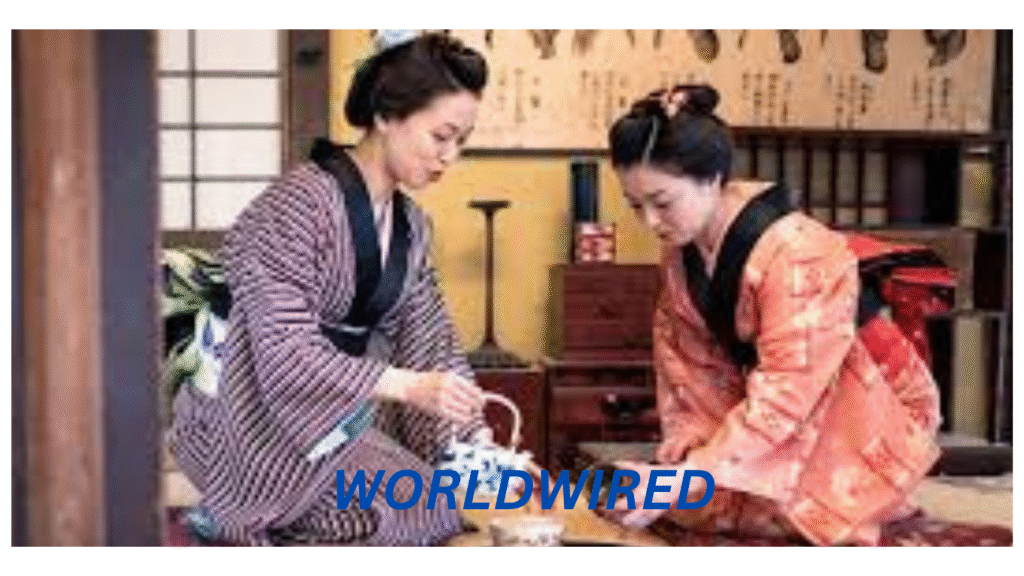
A Gentle World of Its Own
I’ve not always been to Japan, but all I’ve erudite about it brands me feel like I have. Groups who have visited often return with wide eyes and quiet smiles, saying, “It’s unlike.” Not louder, not showier — just unlike in the most passive way.
Respect in Everyday Life
One thing I truly admire is how respect is built into every part of life in Japan. People bow when they greet you. They speak gently, especially to elders or strangers. You feel seen, not ignored.
It’s not fair about respect for the sake of behaviors. It’s part of who they are. Even on a busy street, no one shoves or yells. There’s an silent rule: your space stocks, then so does pit.
A friend once told me she accidentally dropped her wallet in Tokyo. When she came back hours later, it was still there — untouched. That story stayed with me.
Clean Streets Without Pressure
You might think a place this clean must have strict laws or constant cleaning staff. But in Japan, people just clean up after themselves. Kids clean their classrooms. Shop owners sweep outside their stores every morning.
And oddly, there aren’t many trash bins in public — yet the streets are spotless. Why? Because everyone carries their trash home. It’s not a law; it’s a mindset.
Food That Feels Personal
Japanese food isn’t around big shares or spice bangs. It’s about small facts — the way a single sushi roll is located on the plate, or how a bowl of miso soup odors like ease.
Many dishes are seasonal. In coil, you power see lunchtimes with cherry flowers. In wintertime, you’ll find warm states and barred fish. It’s like countryside chooses the tariff. That joining with the periods feels foundation.
Then it’s not fair around what’s on the platter — it’s how it’s helped. Level in a tiny cafe, you’ll be met with compassion and peace, not sound or haste.
Old Meets New, Side by Side
Japan doesn’t hide its past to make room for the future. The old and new live side by side — and somehow, it works.
You container pace past a shining betting center, then abruptly see a 400-year-old shrine just about the corner. People go from high-speed sleepers to quiet monuments inside the similar time.
Even the young cohort, robed in street wear, still rejoice age-old centenaries. They light lamps, write prayers, and wear old-style fashion — not for show, but since it means rather.
Pardon Opinions Out
Pardon opinions out about Japanese culture isn’t rather you can see right away. It’s in the way people change, how they express, and even how they wait long-sufferingly in line. There’s a serenity, a soft correction that innings profound.
Silent Isn’t Difficult Here
In many seats, peace feels painful. But in Japan, peace is valued. On trains, publics sit gently. In parks, no one cries. Even in talk, gaps aren’t hurried.
This silence doesn’t feel empty. It textures full — full of supposed, care, and attendance. That’s somewhat we don’t get much in today’s fast world.
Last Views
Japanese culture isn’t near annoying to be flawless. It’s about being wary. Whether it’s how they serve tea, fold garments, or greet each extra, there’s always aim.
Perhaps that’s what brands it feel so unlike. Not since it’s strange — but as it retells us that life doesn’t have to be loud to be evocative.
Occasionally, it’s the laxest voices that leave the stoutest imprint.

“Top 10 Most Fascinating Cultures to Explore Globally”
asadistaya@gmail.comImportant Highlights National variety offers a sight into the single way of life of groups…

“Discover Greece: Ancient Wisdom, Timeless Culture, and Historic Wonders”
asadistaya@gmail.comThe Artistic Flair of Italy Italy gifts a canvas tinted with wonderful art, beautiful cooking,…

“Europe: A Patchwork of Old Stories and New Surprises”
asadistaya@gmail.comIt’s witty how Europe twigs with you long after you consent. Perhaps it’s the tiny…

Exploring Indian Culture — Through My Eyes, Not a Guidebook
asadistaya@gmail.comI recollect the chief time I powerful in India — the air was thick with…

Living in London as a Foreigner: Complete Survival Guide
asadistaya@gmail.comLiving in London as a Foreigner: Complete Survival Guide Moving to London is a bold…

“Japanese Culture Explained: Traditions, Art, Food & Social Customs”
asadistaya@gmail.comA Gentle World of Its Own I’ve not always been to Japan, but all I’ve…
